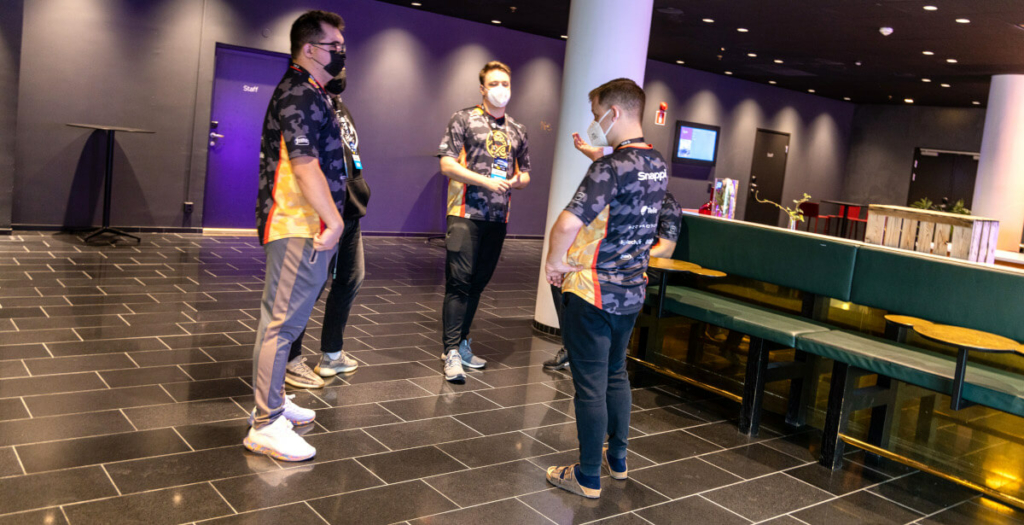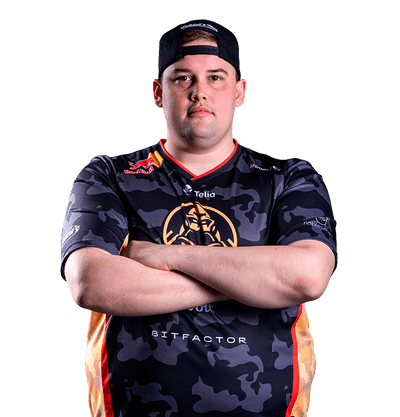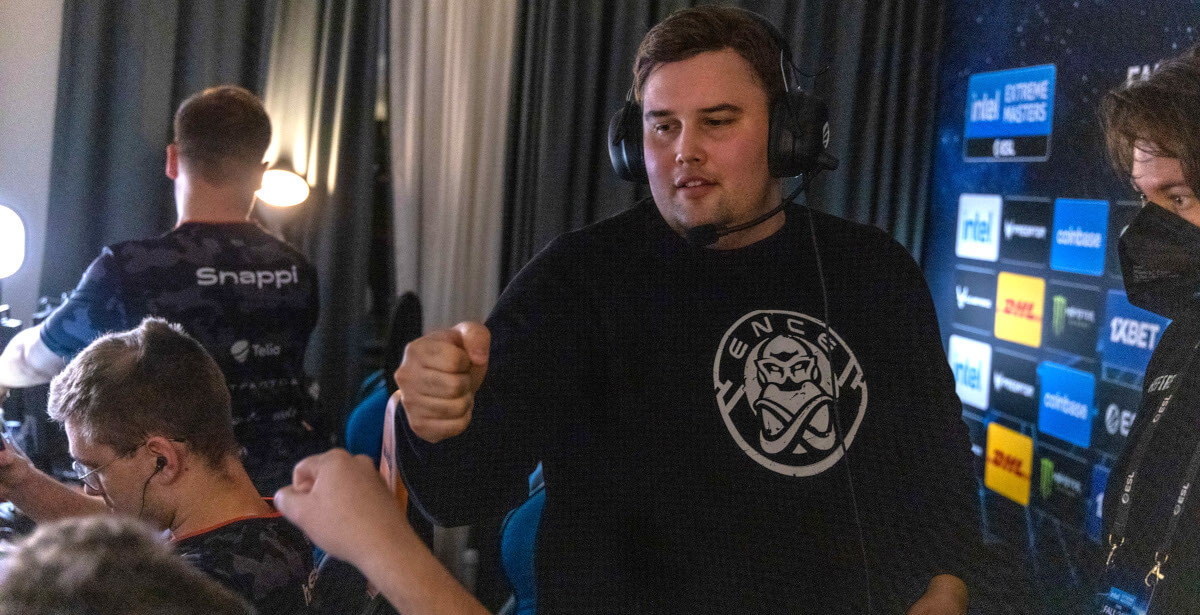[et_pb_section fb_built="1″ _builder_version="3.22″ global_colors_info="{}"][et_pb_row _builder_version="3.25″ background_size="initial" background_position="top_left" background_repeat="repeat" global_colors_info="{}"][et_pb_column type="4_4″ _builder_version="3.25″ custom_padding="|||" global_colors_info="{}" custom_padding__hover="|||"][et_pb_text _builder_version="4.11.2″ background_size="initial" background_position="top_left" background_repeat="repeat" hover_enabled="0″ global_colors_info="{}" sticky_enabled="0″]
ENCEs CS:GO team is one of the world's leading teams, with skilled players from many different countries and cultures. Our team is a very close-knit group, where team spirit is high and effective communication is vital to success. The team spends up to 40 hours a week training and practising together, with each player training on their own. We got to play SmoothTeam sports simulation just before the big tournament.
Small things decide matches
Esports and especially CS are sports that require a lot of work and long days. There can be up to 30 tournaments a year, lasting from a few days to several weeks.
The importance of group dynamics and communication comes to the fore. Even small things can decide games one way or the other. The outcome of a match can depend on milliseconds and a single situation. Therefore, during matches, there can be no room for even the slightest mistake. A mistake can be caused simply by a lapse of thought. In a competitive situation, however, it is important to be able to reset the previous events and focus on the next situation.
Busyness often becomes symptomatic
Often, esports teams are faced with the challenge of scheduling: how to balance time between official games and training? Particularly during the off-season, there have been a lot of games and you don't want to miss them. The more a team plays, the higher it can rise in the statistics.
It can be difficult to find time for training. This, in turn, contributes to the rush, which is reflected in a lack of free time and a certain symptomatology when you focus too much on playing. In practice, all free time has to be used to take your mind off the game.
When you have a lot to do, it's normal that there can be a little friction. In many teams, this can be seen from time to time.
Simulation helped to understand the thought process of others
We played a SmoothTeam simulation just before the big tournament and it was a good set. The exercises and questions were varied and well thought out, and the whole thing ran smoothly. The simulation opened channels of communication and we were able to open up conversations and go over various things. We were able to clear the air and also open up issues that might have rubbed off in the future. In this sense, everyone was left with a positive feeling!
The discussions focused on our team identity: what kind of team we are and what is important to us. As a coach myself, I was reminded of many different things. The simulation helped to understand how others' thoughts go and what is there in the background, how you perceive your teammates. Often I found that others were thinking the same things. This contributes to team spirit, team dynamics and team bonding.
Preparation, communication and mental state are keys to success
Three major themes emerged from the discussions in our simulation:
- Preparing for games - how individuals and teams prepare. Others need space and problems can easily arise when someone acts differently or doesn't understand another's actions. For example, one person's preparation routine is important to another and less important to another. It is essential to understand how to get everyone on the same wavelength and go into matches with the best possible mentality.
- The importance of communication - for us, communication is vital and we talk to each other all the time. The simulation allowed us to reflect on the importance of communication and what kind of communication is used. Each person can individually put into context what kind of things they bring up and it helps to understand others.
- Mental state - how to get into the best possible state for both games and training and what it requires from the team to ensure that each individual can give their best. With the team, we reflect on what our style and approach is.

The coach must earn the players' trust and respect
In general, I think you can improve teamwork by putting the team before the individuals. Everyone is required to make sacrifices for the team. When the team gets results, the individuals get results and succeed. That should be the main motivation for everyone. In addition, there should be the same rules for everyone on the team so that no one can take liberties and destroy the team mentality. There should be respect and trust within the team, both between the players and towards the coach.
It's important for a coach to be fair and think about the team's interests first. The best decisions can only be made when the team trusts and respects the coach. The better the team works together, the better the results. When there is a common goal that everyone believes in 100% and works towards, success can be achieved.
Sometimes talking about the obvious helps to get to the point
Even if some things are self-evident, it is sometimes good to remind yourself and others. But if we start assuming too much, we can easily drift apart. Even when we talk about things that are obvious, such as team practices, communication or trust, small things often come up. They may need a little tweaking or a change of direction, which can usually be done quite easily. But if we don't talk for a long time, a lot of these can accumulate and problems can easily arise.
Talking about the basics helps the team to communicate in other ways too. If there is tension or difficult moments in the future, you can understand why. The more we go over things, the more impact it has. As a coach, I influence the things I talk about.
It is also good for team cooperation and atmosphere if the team does not have to focus only on performance and play, but sometimes the players discuss other things outside the game.
The SmoothTeam simulation provided a smooth way to talk about things that are already familiar and to take the conversation beyond the game.
I recommend SmoothTeam to all teams
I highly recommend SmoothTeam to all teams and groups. Even if you think you're doing really well, it's always useful to spend a couple of hours going over things. For new teams, simulations can open up perspectives, introduce new things and give direction. For older teams, they are a good tool to discuss team strengths, activities and situations.

Eetu "sAw" Saha
Coach, CS:GO
ENCE esports
If you want to know more about SmoothTeam simulations, you can find here information for sports teams simulations for sports teams and here for corporate teams.
[/et_pb_text][/et_pb_column][/et_pb_row][/et_pb_section]


